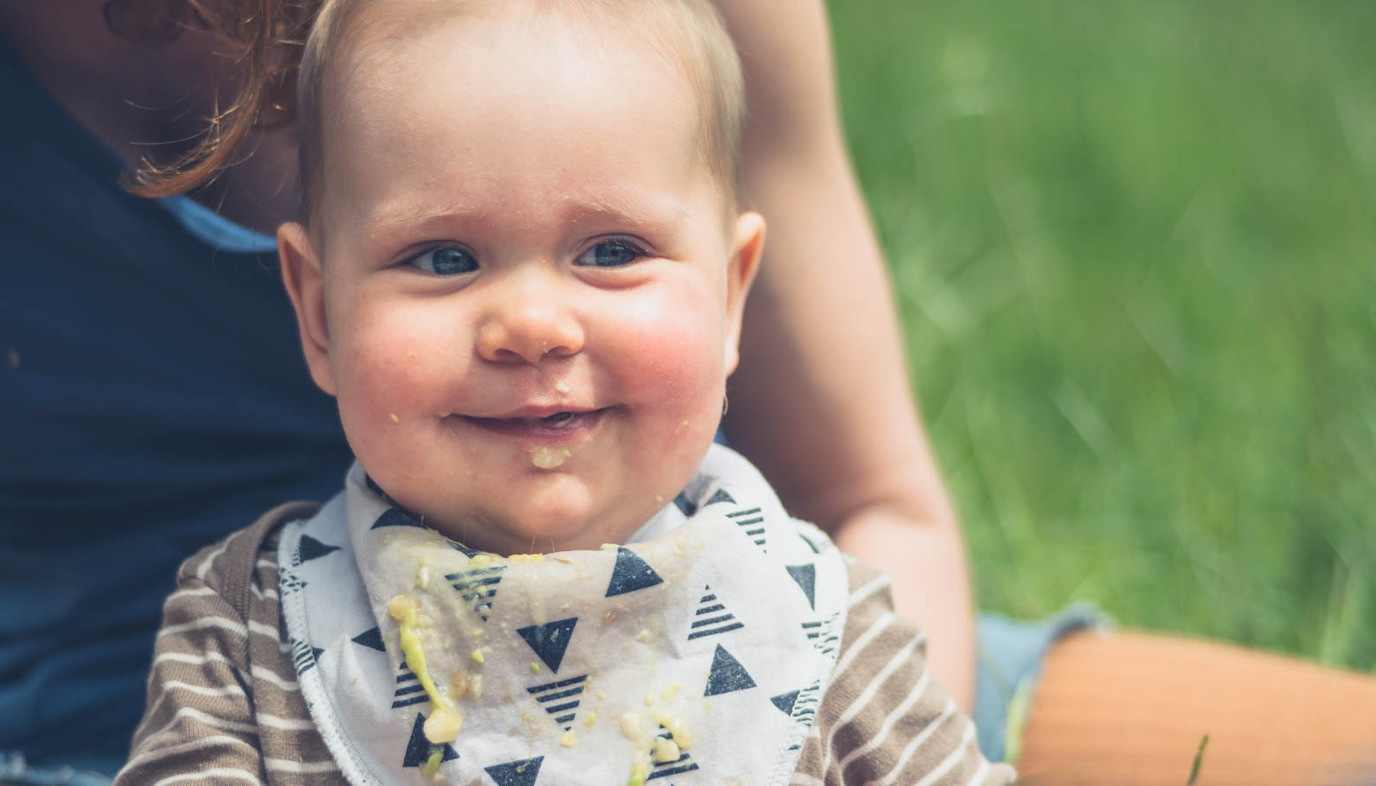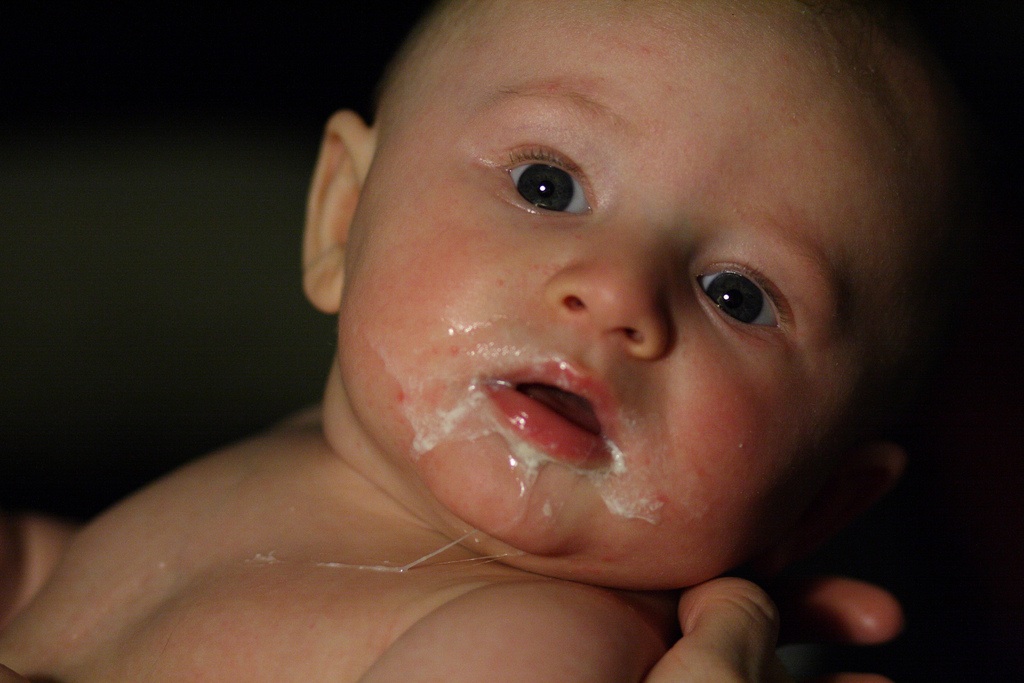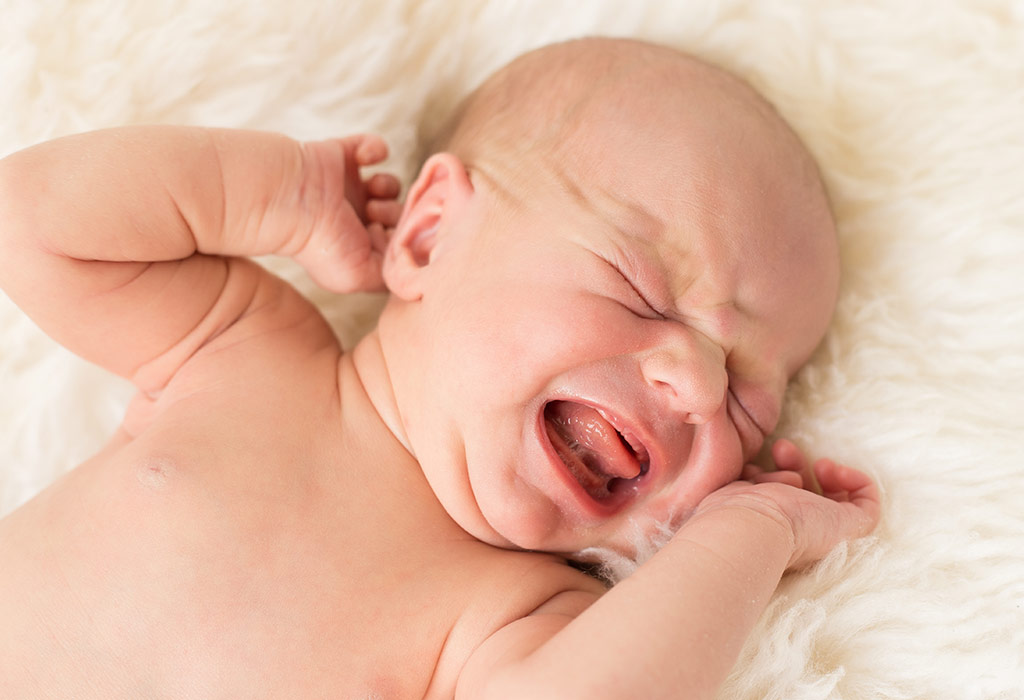Excessive spitting up of curdled milk or any stomach contents is a cause of concern. Although baby spit up generally isnt cause for concern excessive baby spit up can occasionally be tired to anatomical dysfunction or metabolic disorders.
 Baby Spitting Up When Should You Worry Www Justmommies Com
Baby Spitting Up When Should You Worry Www Justmommies Com
The amount of spit-up usually seems much more than it actually is.

Excessive baby spit up. Its not the same as vomiting which. Let some time pass after a feeding. If your pediatrician is satisfied with your childs growth and weight gain then all is probably well and your baby just has a bad.
For the babies that are not happy spitters spit-up may actually be caused by gastroesophageal reflux disease GERD. Occasionally babies may spit up curdled milk or milk due to an immature digestive system. Oversupply of breast milk.
More than Ive ever seen any baby spit up. Here are a few possible reasons for excessive spitting up of. If youre breastfeeding and have a forceful let-down an over-supply of milk or over-full breasts your baby may be feeding too fast and perhaps drinking too much in a short period of time which could be causing her to spit up or vomit soon after.
Try these tips to help if this happens. It often comes along with a burp. It happens with every feeding.
Spits up blood or a material that looks like coffee grounds. This may cause your baby to take too much milk or drink it too quickly. Should I be worried.
Baby is losing or not gaining weight. Baby is coughing gagging or otherwise struggling to eat. If the lower esophageal sphincter doesnt tighten up immediately after it opens the term reflux is used since the spit-up coming back up may be accompanied by stomach juices and acids.
Spits up green or yellow fluid. The most likely offender is cows milk products in babys or moms diet. Baby spit up increases significantly.
Although spit-up can seem like a. A baby with a full stomach is bound to spit up if they have bounced around. Babies who swallow an excessive amount of drool may appear to spit up mucus.
You may consult a pediatrician since this can be due to underlying causes that may require medical or surgical care. Spit up is green or has blood in it. Projectile vomiting is when the vomit flies out of a babys mouth forcefully shooting across the room for example.
Contact your babys doctor if your baby. Has blood in his or her stool. He doesnt cry when it happens.
But in general spitting-up peaks at around 4 months and then stops at some point between 6 months and 12 months of age. Spit-up is what happens when the contents of your babys tummy come back up easily -- not forcefully -- through their mouth. Immature gastroesophagealsphinctersmay cause stomach contents to come up.
How Can You HelpPrevent It. Baby spit-up usually looks more than it really is and in most cases it is about one teaspoon of liquid. Following every feeding hold the baby in an upright position for 20 to 30 minutes.
And it is a large amount. Spit-up normally does not lead to distress or weight loss. I feel like he spits up excessively.
Certain signs and symptoms might indicate an underlying condition or something more serious than run-of-the-mill spitting up. Drool tends to be clear and stretchy so it looks like mucus. A baby throwing up mucus can be alarming but it may just be a common reaction to something simple that can be fixed easily at home.
Its been 8 years since my last baby so bear with me. For most babies spit-up is a quick smooth flow of liquids up and out during or shortly after a feeding. Sometimes it comes out of his nose.
My baby is constantly spitting up. Call your pediatrician if. My son is 6 weeks old.
It usually spurts or dribbles out of the babys mouth. Food sensitivities can cause excessive spitting. Babies may spit up curdled milk occasionally without apparent causes.
However excessive spitting up of curdled milk can be due to any of the following reasons. Sometimes the spit-up appears forceful much like projectile vomit. Acid reflux can be a common cause of spitting up curdled milk in new borns and young babies.
Reflux happens when your baby regurgitates food from their stomach and spits up. Reasons for Excessive Spitting Up of Curdled Milk in Babies. In addition to their developing digestive system there may be a few other factors causing excessive spit-up.
Call your doctor immediately if your baby begins projectile vomiting. Babies who spit up so much that they dont gain enough weight or have difficulty breathing may have gastroesophageal reflux disease or GERD. Most babies more or less stop spitting up when they have become strong enough to sit up without support.
More than two-thirds of babies will have reflux that causes spitting up as often as a few times a day. He spits up usually 3 times after a feeding sometimes during. Some causes of excessive spitting up.
Breastmilk oversupply or forceful let-down milk ejection reflex can cause reflux-like symptoms and usually can be remedied with simple measures.
Gently massage your baby pump their legs back and forth like riding a bike while they are on their back or give their tummy time watch tjem while they lie on their stomach. Flatulence in babies and children is gas from your childs digestive system leaving his body through his bottom.
 5 Signs You Re Dealing With A Gassy Baby And What To Do About It Formuland
5 Signs You Re Dealing With A Gassy Baby And What To Do About It Formuland
Gas in babies is common especially during the very early years.

Excessive gas in infants. Just like adults babies can have different-smelling gas patterns that often depend upon what baby has eaten or what mom has eaten and passed along in her breast milk. You can prevent most excessive gas with effective burping. How to Burp Your Baby.
Excess gas can cause discomfort pain and bloating. Flatulence can happen when you eat foods that are high in fibre like beans or carbonated fizzy drinks. However excessive gas symptoms may also be caused by certain medical conditions.
Infants also take in a lot of air while feeding and crying which produces more gas says Samira Armin MD a pediatrician at Texas Childrens Pediatrics in Houston. Belching burping and passing gas eliminates gas from your digestive tract. Its common for babies to pass gas about 13 21 times a day due to several reasons such as.
He would prescribe anti flatulent medicines suited for babies and toddlers. No matter what the reason is it is essential to address the issue of gassiness in the baby as it could make them fussy and. Swallowing air when feeding.
Gas is primarily made of odorless vapors including carbon dioxide nitrogen oxygen hydrogen and sometimes methane. An underdeveloped digestive system which allows food to pass through too quickly so it doesnt break down completely. Sometimes gas may have a bad odor.
Excessive intestinal gas belching or flatulence more than 20 times a day sometimes indicates a disorder such as. Overfeeding your baby can make it harder for her to break down the lactose in the milk resulting in gas. Hypersensitivities to certain types of formula or foods in Moms diet or possibly food allergies though those are much rarer.
Hope this article on home remedies to treat gas in babies and toddlers was useful and informative. If the child has flatulence do not offer him food. Baby Gas Problems Causes.
Please share your home remedies with us and let us all know the tactics to deal gas flatulence and acidity problems in babies. Remedies for Excessive Gas. Excess gas and gas that you cant pass may cause intense abdominal pain.
Pain caused due to excessive flatulence in children leads to loss of appetite crying weight loss sleeplessness vomiting and fever. In addition to helping your baby relax a gentle belly-rub might help dispel gas or at least help her tummy feel better. Your baby might be better at handling smaller feedings more often rather than large quantities of breast milk or formula all at once.
Moving their legs in a circle Lay the baby flat on their back and lift their legs with their knees bent. If after all measures taken flatulence does not go away you should definitely show your child to the doctor. I have found that restricting diet and lifestyles of nursing moms is one of the reasons why moms stop nursing says Ari Brown MD an Austin-based pediatrician and the author of Baby 411.
Infant gas has several possible causes. If any of these symptoms do not resolve quickly then its highly recommended to consult your family doctor or any paediatrician immediately. Its also called passing wind farting and many other things as well.
Gastroesophageal reflux disease GERD. Excess gastrointestinal gas in babies is a common phenomenon and in most cases it is not a sign of a digestive problemGas buildup in the gut may present with signs like excessive belching flatulence abdominal distension bloating and crying. Gas accumulation or production within the gut of a baby occurs for the same reasons as in an adult air swallowing.
Excess abdominal gas in children also called flatulence is very common and is typically easy to cure. Massage your babys belly. This will further exacerbate discomfort.
Symptoms of gas pain or excessive formation of flatulence in infants or toddlers include abdominal pain stomach cramps constipation bloating and diarrhoea. Gas symptoms occur daily as part of your childs normal digestive process. Several factors lead to flatulence in infants and babies including the type of formula the baby has and the mothers diet that affects the breast milk.
Give him water or tea calm him. Crohns disease a type of inflammatory bowel disease Diabetes. When the swelling is reduced you can feed the baby but little by little avoiding overfeeding.
Excessive gas in babies is normally caused by air swallowing during feeding rather than a problem with the milk. Try the following methods to relieve gas in a baby. The notable symptoms of excessive gas in infants are belching frequent passing of gas abdominal distension constipation crying after feeding sleep disturbance and at times vomiting.
A warm bath can. Swallowing air when feeding or crying which is very common and normal among new babies. The key to decoding your babys gas is to first identify your babys normal Over the course of a few days determine about how often your baby passes gasYour next task may not be as pleasant but it is to.
Your little one can swallow some air into her tummies while feeding causing her to expel wind later on either by burping or farting. Move the legs in a bicycling motion to.
Concordance between definitions was only excellent kappa 075 if they were closely related such as crying for 3 hoursday for 3 daysweek for the preceding 2 or 3 weeks. Colic is often defined as crying for three or more hours a day three or more days a week for three or more weeks in an otherwise healthy infant.
 Peaceful Parenting Excessive Crying Harmful To Babies
Peaceful Parenting Excessive Crying Harmful To Babies
Epub 2019 Jul 3 doi.

Excessive crying in neonates. It is quite common for newborn babies to cry a lot. Crying is their main form of communication and babies just use it when ever they need something or feel uncomfortable. A general population study.
Colic may be best viewed as a clinical manifestation of normal emotional development in which an infant has diminished capacity to regulate crying duration. While toddlers dont usually cry as much as babies theyve learned to express their complaints in a more eloquent waylike flinging a. Different prevalence rates of excessive crying have been reported ranging from 14 to approximately 30 in infants up to 3 months of age.
Excessive crying is considered when an infant especially the young infant is crying more than 3 hours a day and more for more than 3 hours a week. Organic disease accounts for. In a classic study about crying in infants Brazelton defines excessive crying as any amount of crying that worries the parents 10 but the consensus definition by several authors are the criteria defined by Wessel 11 known as the rule of three crying spells at least three hours a day three times a week for three consecutive weeks and lasting three months.
Petechiae and purpura are late findings in sepsis. Some babies have frustrating periods of frequent prolonged and intense crying known as colic typically starting a few weeks after birth and improving by age 3 months. Colic is an out-dated term used to describe excessive crying.
Overall prevalence rates of excessive crying varied strongly between definitions from 15 to 119. Different prevalence rates of excessive crying have been reported ranging from 14 to approximately 30 in infants up to 3 months of age. Colic typically occurs in infants about 6 weeks to 3 or 4 months old.
Although usually benign and self-limiting. Discomfort or irritation from a wet or dirty diaper excessive gas or feeling cold. Skin mottling and acrocyanosis can be normal in newborns but in the presence of other physical exam findings such as fever or lethargy they may be markers of shock.
Infection a likely cause if the crying is accompanied by irritability lethargy poor appetite or fever. Parents who feed their infants at their own convenience find it difficult to handle the crying of the infants. Colic or excessive crying is one of the most frequent problems presented to pediatricians by new parents.
Excessive crying is a common symptom in the first 3 months of life and leads to approximately 20 of pediatric consultations. What are the implications of excessive crying. Brazy at Duke University and Ludington-Hoe and colleagues at Case Western University showed in 2 separate studies how prolonged crying in infants causes increased blood pressure in the brain elevates stress hormones obstructs blood from draining out of the brain and decreases oxygenation to the brain.
Infants may cry because of any of the following. They were always highest in 1-month-old infants. Colic refers to excessive crying that has no identifiable cause and that occurs at least 3 hours a day for more than 3 days a week for more than 3 weeks.
But sometimes babies cry far more than that enough to make a parent or caregiver wonder if something more serious is going on. Obviously all babies cry. First time parents are often at a loss to understand why the baby is crying and often feel helpless.
Excessive crying of newborn 95629002 Recent clinical studies. Different prevalence rates of excessive crying have been reported ranging from 14 to approximately 30 in infants up to 3 months of age. Excessive infant crying has been associated with a twofold increased risk of the overall problem behavior conduct problems hyperactivity and mood problems at the age of 56.
There is evidence linking excessive crying early in life with adaptive problems in the preschool period as well as with early weaning maternal anxiety and depression attention deficit hyperactivity disorder and other behavioral problems. You should call your babys health care provider Medicines. At 68 weeks age a baby cries on average 2-3 hours per 24 hours.
Excessive crying is associated with higher rates of parental post-natal depression Background. Parental education and close follow-up are vital to managing the unsettled or crying infant. Infants typically cry a total of one to three hours a day.
Problems of feeding sleeping and excessive crying in infancy. There is evidence linking excessive crying early in life with adaptive problems in the preschool period as well as with early weaning maternal anxiety and depression attention deficit hyperactivity disorder and other behavioral problems. Excessive infant crying doubles the risk of behavioral hyperactivity and mood problems at the age of 56 as reported by their mother.
Excessive crying in the newborn 95629002. Excessive crying often described as infantile colic is the cause of 10 to 20 of all early pediatrician visits of infants aged 2 weeks to 3 months. Excessive Crying In Newborn Babies.
Olsen AL Ammitzbøll J Olsen EM Skovgaard AM Arch Dis Child 2019 Nov104111034-1041.